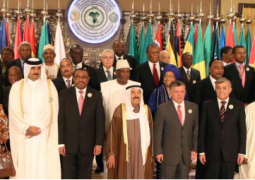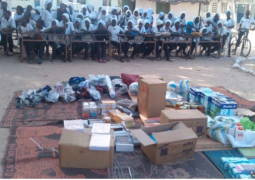The Gambia Bar Association, in collaboration with the Attorney-General Chambers and the Institute for Human Rights and Development in Africa (IHRDA) recently held a two-day forum on the "implementation of the legal aid act 2008."
The forum, which brought together legal experts from Ghana Legal Aid Board, Judges, Magistrate, Civil Society Organisations, police, was among others, aimed at increasing public awareness at the legal aid in The Gambia, increased the usage of legal aid, particularly at the grassroots level.
It also seeks to ensure that key stakeholders in the implementation of the act are conversant with the provisions of the law, make recommendations of the law to the Attorney-General and Minister of Justice.
Speaking at the opening ceremony held at the Sheraton Hotel, the Attorney-General and Minister of Justice, Edward Gomez said the Legal Aid Act 2008, would go a long way towards enhancing the Gambia's Criminal Justice System.
"It would make it to be more affordable and more accessible, and it would also complement International and Regional Human Rights Conventions like the UN 1948 Universal Declaration of Human and Peoples Rights, the African Charter of Human and Peoples Rights (Bangui Charter of Human and Peoples Rights), all of which the Republic of The Gambia, has signed, ratified and domesticated, thus making them enforceable in our national courts," he stated.
The legal criteria, which one has to satisfy, before he or she is eligible to be a bona fide beneficiary of Legal Aid, he added, is clearly encapsulated in Section 30 (1) and (2) of the Legal Aid Act.
Justice Minister stated that a person is also entitled to legal aid, if he or she desires legal representation in any criminal or civil matter and earns not more than such minimum wage as the government may specify.
According to Minister Gomez, lawyers indeed have paramount role to play, as far as providing Legal Aid is concerned.
For her part, Mrs. Amie Bensouda, the Chairperson of the Institute for Human Rights and Development in Africa's Board of Directors said the focus of their discussion was to bring together stakeholders from the justice system and civil society in strategising for improved legal aid in The Gambia.
According to her, the seminar recommended that legislation for legal aid should be expanded beyond capital offences and offences punishable with life imprisonment, as well as the strengthening of the judiciary by providing capacity building and sustainability of a legal aid programme.
This, she added, would require lobbying efforts, public sensitisation and collaboration between stakeholders in the justice delivery system, parliament and civil society.




